Why are European journalists increasingly concerned about press freedom? What challenges do they face? Agapi Pachatouridou, a second-year student in the Department of Communication and Media Studies at the National and Kapodistrian University of Athens, highlighted key insights from the opening panel at the iMEdD International Journalism Forum 2024.
News Avoidance: Ideas for reconnecting the public with journalism

Can public trust in the media be restored? What kinds of content make investigative journalism more accessible? Can broader representation of social groups help reverse news avoidance? Elli Petraki, a second-year journalism student at the National and Kapodistrian University of Athens, noted the innovative solutions that four journalists – with different perspectives from each other – proposed to combat news avoidance.
“Today, press freedom is under attack not only in authoritarian regimes, as we might expect, but also in democratic nations, including in the land that gave birth to printed press: Europe.” With these words, Anastasia Moumtzaki, Project Manager for Bridge and Senior Producer of SNF Dialogues at iMEdD introduced the first panel of this year’s International Journalism Forum.
Despite Europe’s reputation as part of the progressive and developed world, journalists still face numerous obstacles when trying to practice independent and unbiased journalism. The panel titled Defending Press Freedom: The Case of Europe began with interventions from six European journalists, who shared personal experiences of having their freedom of expression rights violated.
European journalists share testimonies of persecution and intimidation
Beata Balogová, a Slovak journalist and editor-in-chief of the daily newspaper SME, shared that she has been subjected to dozens of abusive online comments and personal attacks in recent years—a daily reality for many journalists in her country. “Another pillar of free journalism is crumbling, which is even more dangerous than he [Robert Fico] is legitimizing conspiracy sites as legal journalists”
Next to speak was Ariane Lavrilleux, a journalist with the non-profit French investigative organization Disclose. Lavrilleux was detained by French secret services in September 2023 as part of a police investigation, during which many of her personal files were seized. “Any journalist in France is at risk when they investigate on confidential military issue [sic],” she said.
Bojana Jovanović from Serbia, an investigative reporter and deputy editor-in-chief at KRIKthen took the floor, revealing the immense pressure she faces from the government through SLAPPs (Strategic Lawsuits Against Public Participation) and emphasising that the government and the ruling party control all mainstream media.
Interventions by journalists
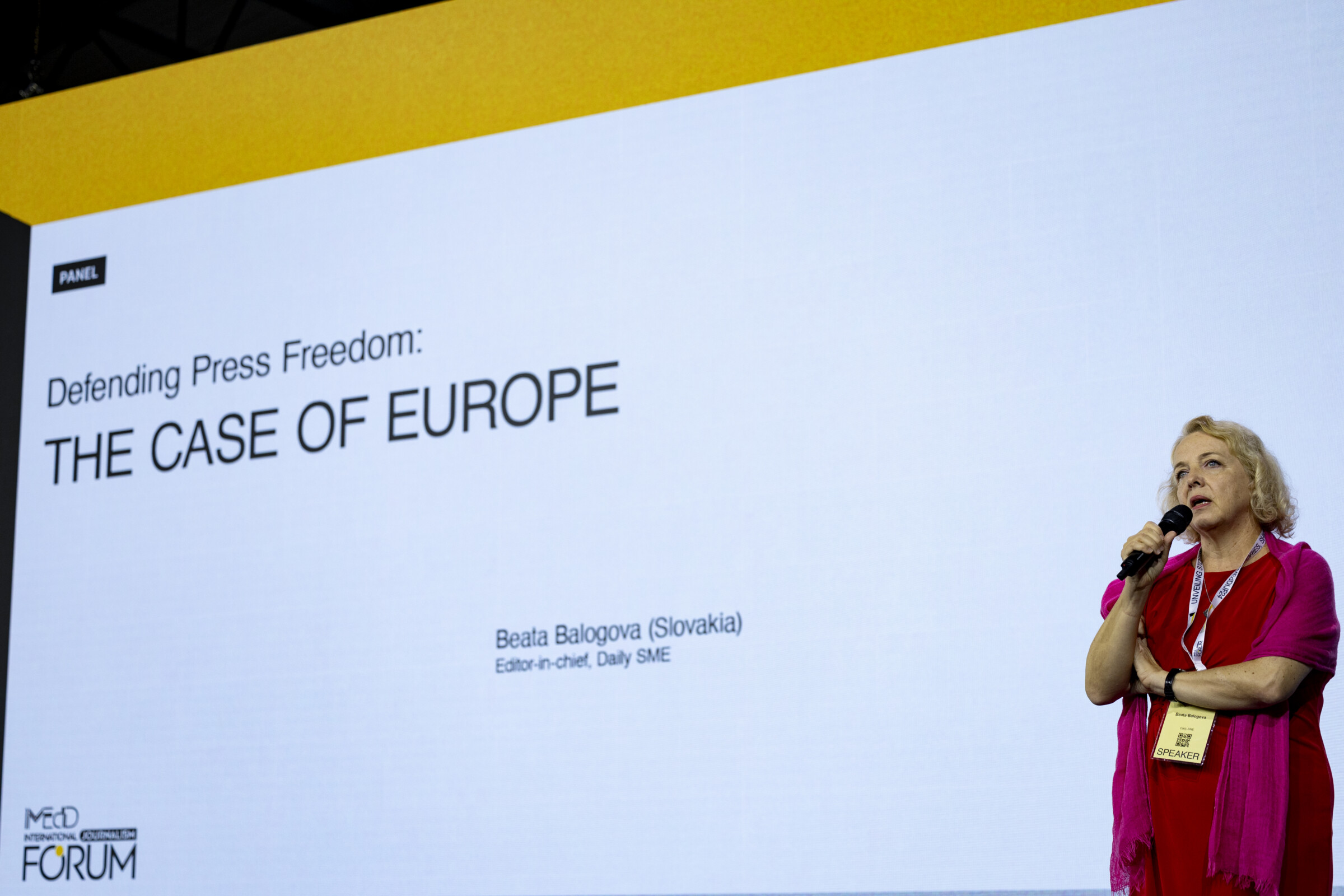
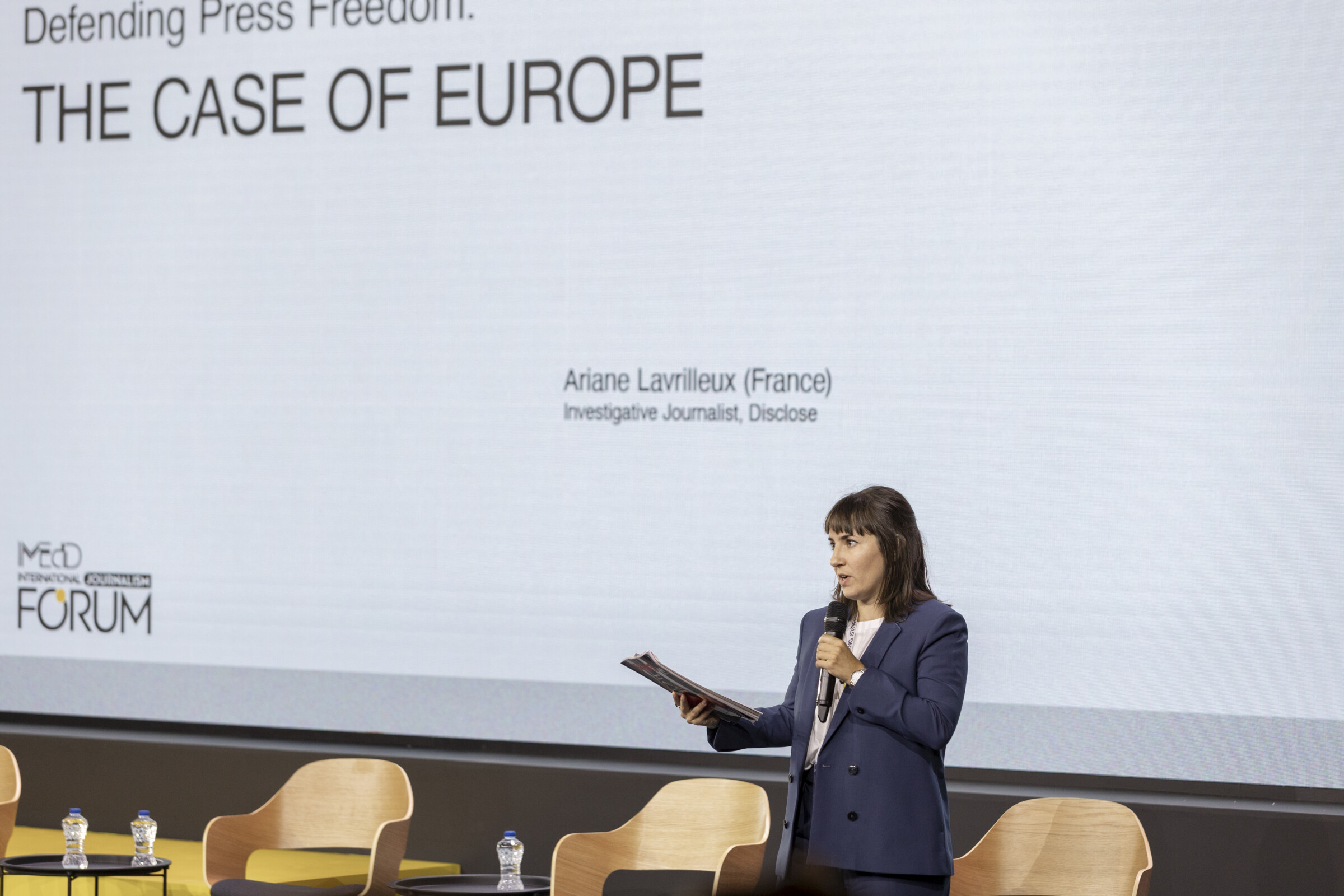
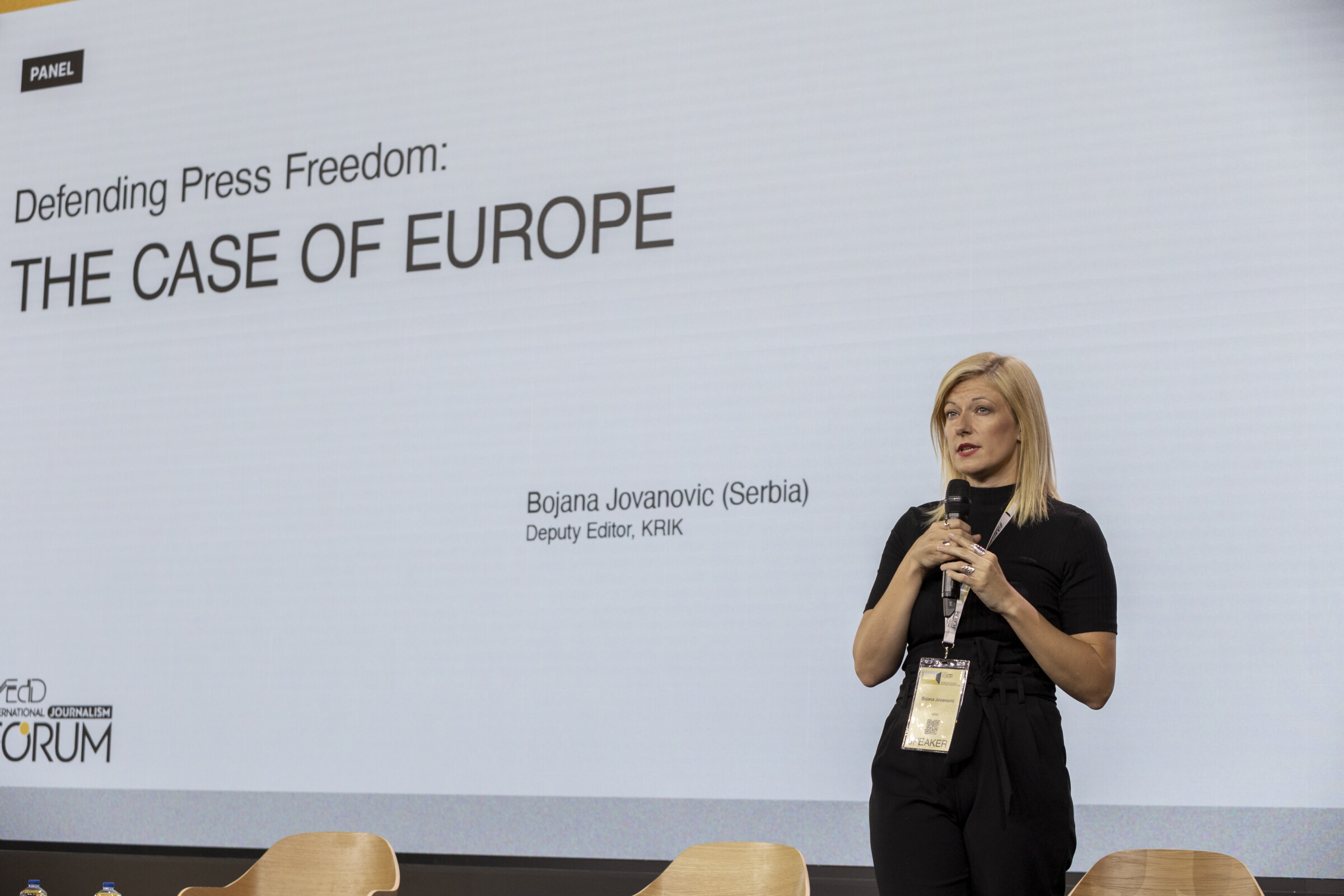
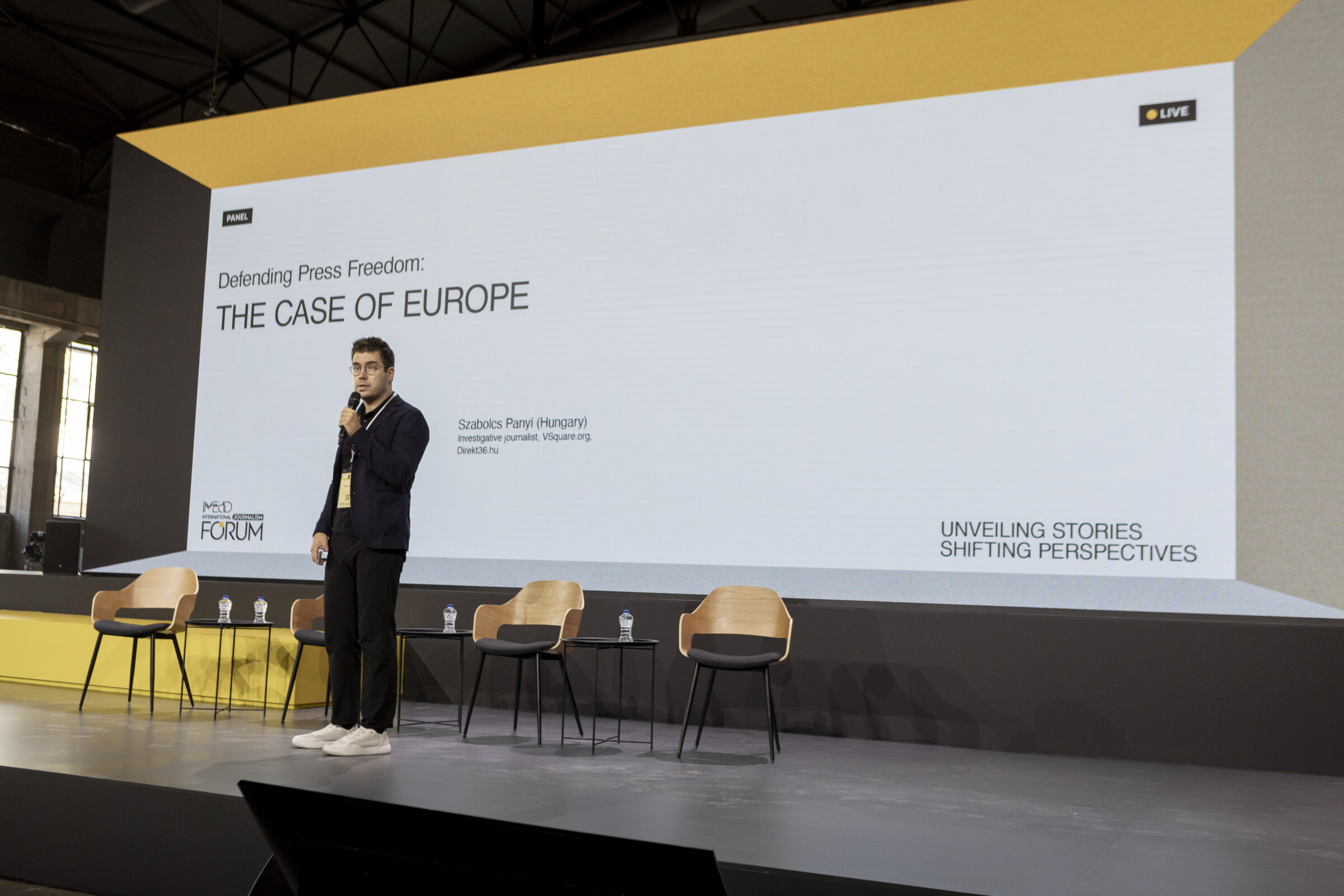
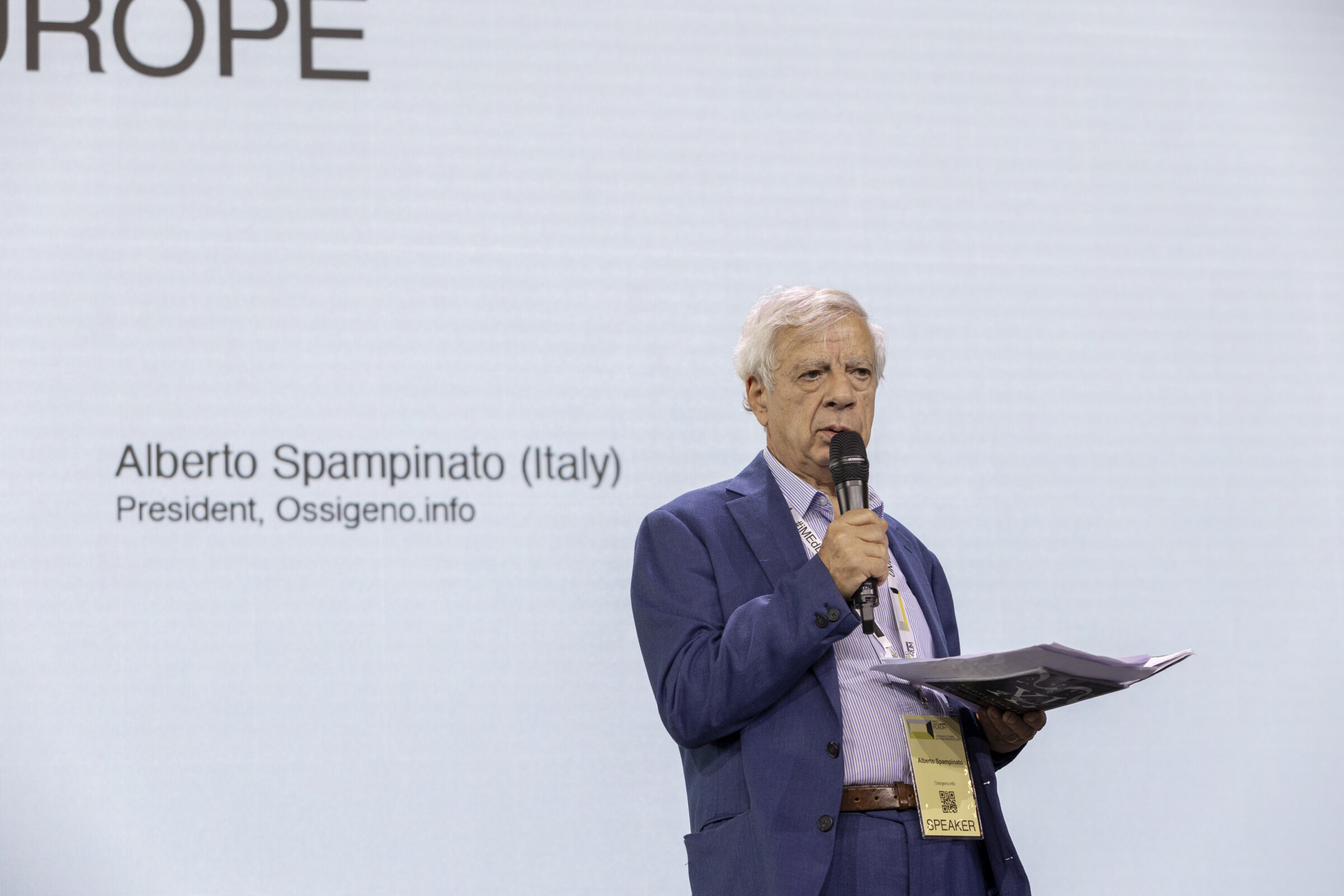
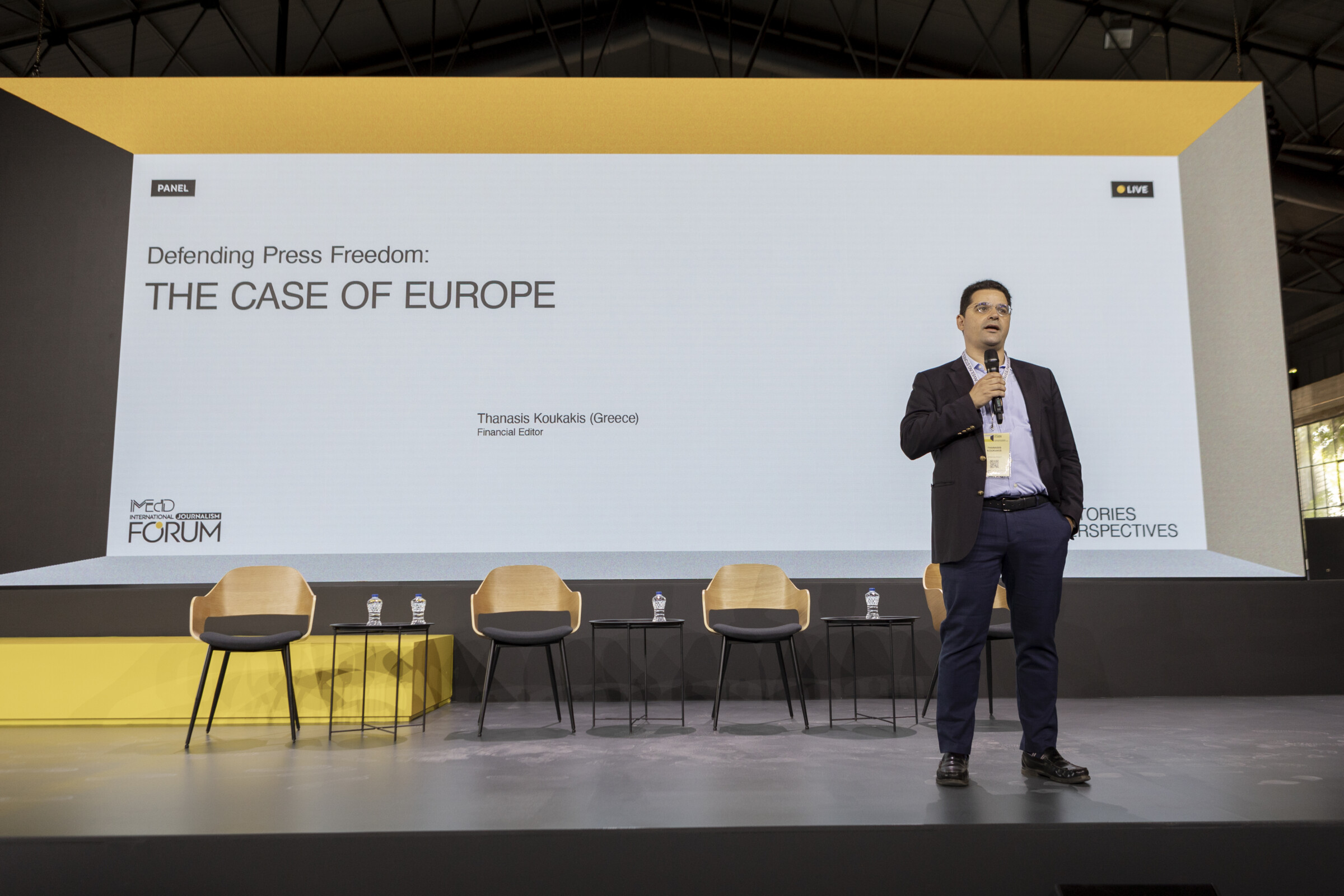
Next, Szabolcs Panyi, a Hungarian journalist with the investigative media outlets VSquare.org and Direkt36.hu, shared his own experience. He was monitored for six months after his phone was infected with the Pegasus spyware while investigating Russia’s influence in Hungary. “They put spyware on our phones because they wanted to figure out who were our sources [sic], those brave people who help us with our investigations, who leak documents to us, who give tips to us,” he explained, adding that journalists are frequently targeted by smear and hate campaigns.
Following him, Alberto Spampinato, an Italian journalist, stepped up to share his insights. He spoke about the murder of his brother, also a journalist, by the mafia in Sicily in 1972 due to his investigative work. In his brother’s memory, Spampinato co-founded the non-governmental organization Ossigeno per l’Informazione to protect journalists.
The final speaker was Thanasis Koukakis, the first journalist in Greece to publicly denounce his spyware surveillance in April 2022. As he explained, he and his collaborators managed, through their partnerships with domestic and foreign news media, to make his story known and to reverse the authoritarian pattern of surveilling journalists through spyware.
Interference in press freedom: The experts’ perspective
The journalists’ testimonies were followed by an on-stage discussion featuring Elena Rodina, coordinator of the Media Freedom Rapid Response (MFRR) consortium; Julie Majerczak, journalist and representative of Reporters Without Borders (RSF); and Scott Griffen, interim executive director of the International Press Institute (IPI).
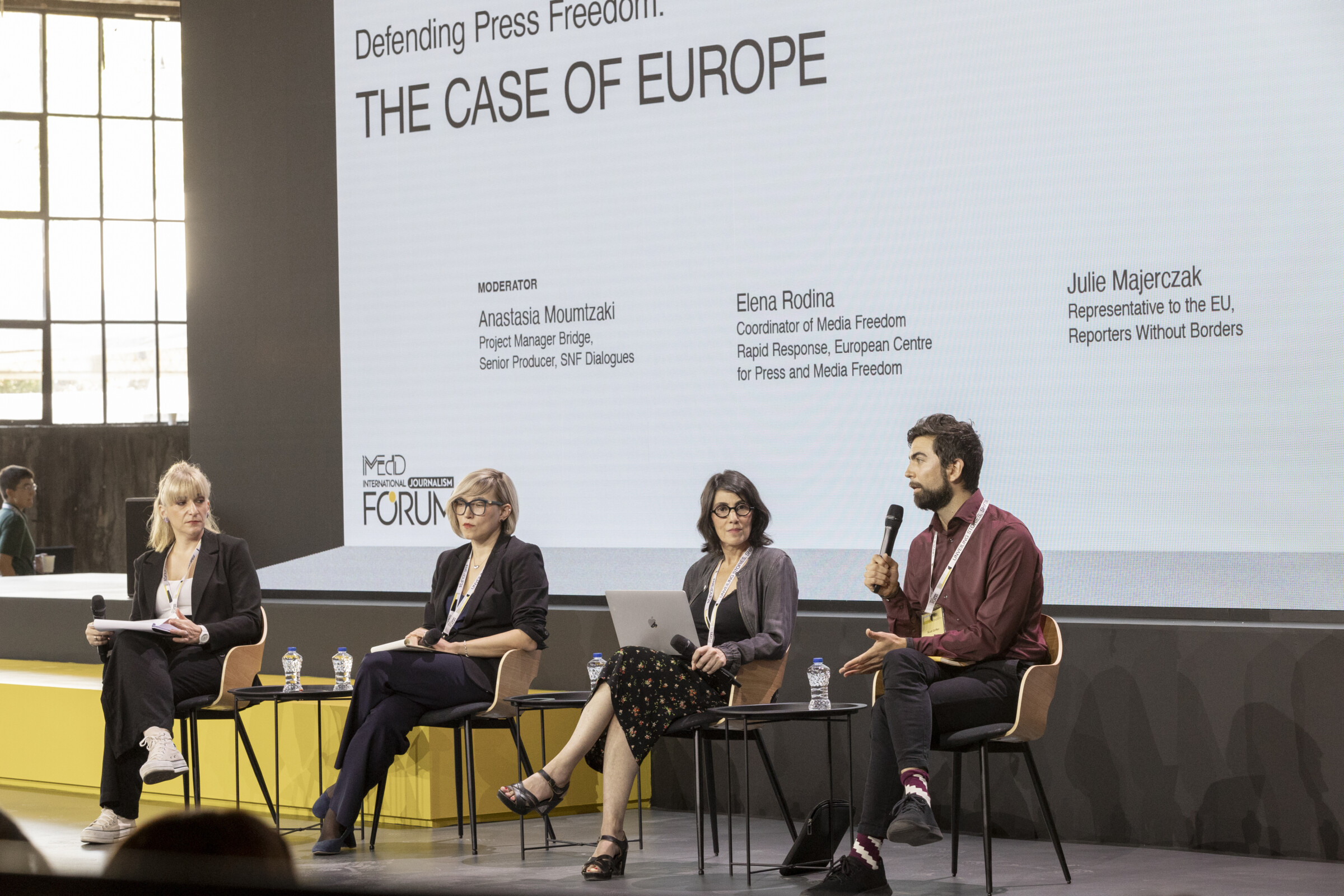
Elena Rodina presented findings from the MFRR report, highlighting concerning trends in Europe, including increased governmental interference in the media and the growing challenges journalists face, such as the rise of anti-media laws, spoofing, (that involves AI-generated deep-fake content targeting journalists), and other forms of harassment.
The absence of press freedom is intensifying outside European borders as Europe continues to protect this right more vigorously, said Julie Majerczak. She noted that Hungary, Malta, and Greece are faring worse within European borders. The most severe indicators globally, she pointed out, are in the Middle East and North Africa, adding that the highest rates of attacks against journalists are recorded in Ukraine and Russia due to the ongoing war.
“I think we can actually talk about a multi-pronged attack on press freedom in Europe,” said Scott Griffen, referring to the rise in physical, digital, cyber, and defamation attacks. He noted that journalism, particularly investigative and independent journalism, faces multifaceted threats, while mainstream media is increasingly used to serve propaganda.
Elena Rodina emphasized the issue of SLAPPs, explaining the serious obstacles they create for journalists. “It is the very process of dragging a journalist through this very expensive, lengthy court procedure and over and over again, distracting the journalists from working, from actually reporting, from producing news, from their work,” she said.
“So is there hope?” Anastasia Moumtzaki then asked, referring to European legislation aimed at protecting journalists. In response, Julie Majerczak first discussed the European directive against SLAPPs, explaining, “It was quite difficult to have this directive because of the division of the competencies of the Member States and the EU.”. She then spoke about the European Media Freedom Act, stating that the new provisions legally protect media independence to a large extent by safeguarding journalists from state interference and surveillance. The act also aims to ensure fair distribution of state advertising and to prevent abusive surveillance. However, it is not yet fully implemented.
Ms. Rodina highlighted how populist rhetoric, as documented in countries like Hungary, easily sways public opinion, which largely views media outlets that expose government corruption as foreign agents or enemies. This perception contributes to the outcomes of recent elections and the rise of conservatism in Europe, Griffen said, although he expressed hope that “the European Union will be a strong supporter of media freedom.”
As the discussion approached its conclusion, the speakers addressed the issue of media capture—a systemic problem in which media owners offer supportive news coverage to politicians in exchange for favorable treatment of their businesses. This trend has become increasingly evident over the past two years. They also highlighted the troubling issue of illegal surveillance of journalists, which serves as a form of intimidation.
Recommendations for the future
Elena Rodina urged journalists to seek help when needed, encouraging them not to hesitate in asking for psychological and medical support. She specifically mentioned the Journalists-in-Residence program, which provides opportunities for journalists to escape oppressive environments and build supportive networks.
The debate concluded with a critical observation from Julie Majerczak, who noted the growing distrust of journalists among the public. “Maybe also journalists have some obligation and have to think about how they work, how they communicate and try to find some ways to regain this trust, because it is, yes, at the heart of democracy,” she said.
Watch again the discussion:
Check out all Pop-Up Newsroom 2024 stories here.